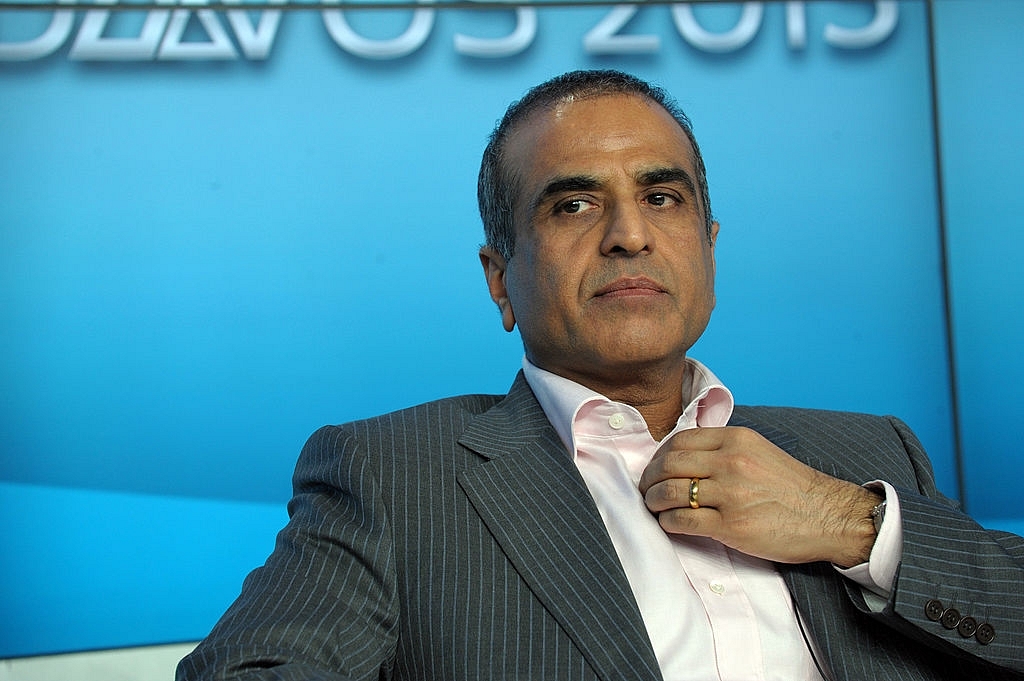Technology
How Bharti Airtel May Have A Lead Role To Play In Global Delivery Of Internet From Space
- Last week’s launch of 36 satellites at one go gives owners, OneWeb, a head-start in the global race to provide Internet from space.
- With the Bharti Group a major stakeholder and tech provider, an Indian group stands close to a pole position in this cutting-edge technology race.

Bharti Airtel's Sunil Mittal has a big stake in OneWeb of UK, which is now venturing into providing Internet from Space.
Terrestrial Internet, as we know and use, is so yesterday. The most ubiquitous global data network, covering every inch of the earth, from pole to pole, will now be delivered from space through a garland of hundreds, possibly thousands, of small table-top-sized satellites.
And a savvy move, by a private entrepreneur, offers a historic chance for India to leapfrog into this new — and very imminent — era of Internet from space, even as she imprints the new technology with her brand.
They would hover just 1,200 km above the earth (30 times closer than the geostationary satellites that provide global navigation services like GPS — and India’s NAVIC).
The promise is to provide a global Internet service covering the world in a manner that has not been possible before — leaving no surface unconnected — Arctic, Antarctic or equator, at data rates, almost, but not quite, matching terrestrial Internet.
As an aside, OneWeb’s announcement pointed at the two big co-owners of this enterprise: the British government and Bharti Global (part of Bharti Enterprises who run Airtel, India’s largest mobile service and the third-largest cellular operator in the world).
The two players each own approximately 45 per cent of OneWeb, having just weeks ago, pitched in half a billion US dollars each, to rescue the company from bankruptcy.
This infusion had ensured continuity of her plans — and propelled her simultaneously, to a lead position in the world-wide race to be first with a space Internet offering.
Consider this: The parent company is based in the UK, the satellites are manufactured in the US and lofted into orbit by a Russian space vehicle; with the Indian co-owner tasked with “acting as testing ground for all products, services and operations”.
The announcement of OneWeb’s second coming stressed the key role to be played by the Indian entity: “Bharti will contribute significant contract value to OneWeb through its presence across South Asia and Sub-Saharan Africa, where the terrain necessitates the use of satellite-based connectivity, providing a near-term anchor customer for large-scale global deployment of OneWeb’s services.”
Benefits for India
WebOne expects to start Internet services in 2021 across swathes of the northern hemisphere — including the north polar region which has never been illuminated till now. As more satellites join the network, India could be offered high-speed Internet around the middle of 2022, Mittal assures.
But some regulatory issues may have to be addressed. Unlike the co-investor UK, Bharti is a private player and would need the consent and cooperation of the Indian government, including agencies like ISRO, before Indian enterprises and lay customers can install user terminals.
In any case, satellite-based space Internet remains the costliest method of delivery compared to fibre cables and mobile wireless. It makes its case by promising broadband connectivity to vast interior regions left unconnected or under-served, as well as a reliable communication tool in disaster situations.
Other options
That last role has hitherto been played by satellite phones fuelled by relatively small number (8-10) of geostationary satellites run by companies like Iridium, Globalstar, Thuraya and Inmarsat.
These satellites hover 36,000 km above the earth unlike the low-orbit 1,200 km of OneWeb and use large receiving antennas on earth.
Inmarsat maintains an earth station at Ghaziabad in the national capital region and this helped it to tie up with BSNL as an Indian partner to offer its iSatPhone handsets and a Global Satellite Phone Service (GSPS) which includes voice calls and Internet access.
OneWeb also faces competition from other enterprises who have also announced low-orbit satellite internet projects — Amazon’s Project Kuiper and the Elon Musk-led SpaceX’s Starlink — but have not yet put systems in place (See Swarajya, August 4 2020).
The Economic Times reports that the government-owned Telecom Consultants India Limited (TCIL) has partnered with a British provider, Methera, who will provide satellite-based broadband services in 2022-23.
It is not clear whose satellite network they will use.
OneWeb currently has a first mover advantage and the UK-Bharti kitty may buy it the ability to be first-to-market. But it remains to be seen if Internet from space can expand its role from a technology to illumine the world’s unconnected stretches to anything like the ubiquity of current Internet services.
And for the Indian government, this presents an opportunity that might possibly dovetail with its stated ambitions to play a leadership role in technology on a global stage.
It will have to decide if endorsing and supporting the global role of a private India-based player in futuristic technology, could be an unquantifiable but useful ‘message’ — or just the hard-nosed and techno-commercially savvy thing to do.
Introducing ElectionsHQ + 50 Ground Reports Project
The 2024 elections might seem easy to guess, but there are some important questions that shouldn't be missed.
Do freebies still sway voters? Do people prioritise infrastructure when voting? How will Punjab vote?
The answers to these questions provide great insights into where we, as a country, are headed in the years to come.
Swarajya is starting a project with an aim to do 50 solid ground stories and a smart commentary service on WhatsApp, a one-of-a-kind. We'd love your support during this election season.
Click below to contribute.
Latest